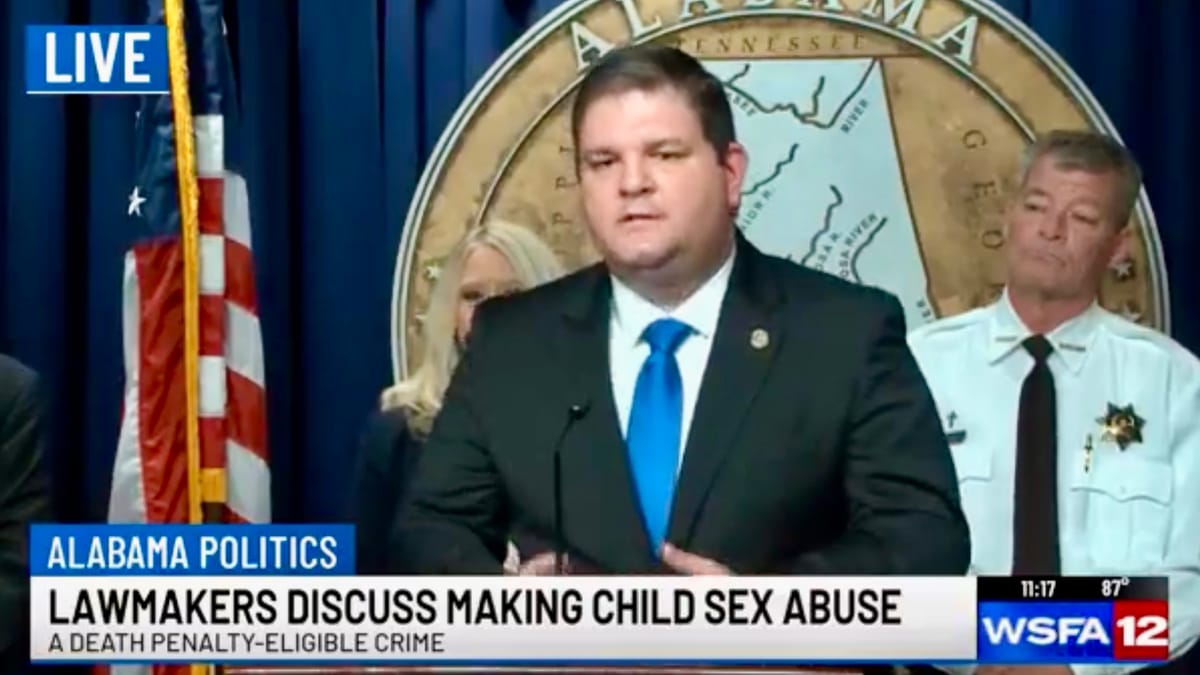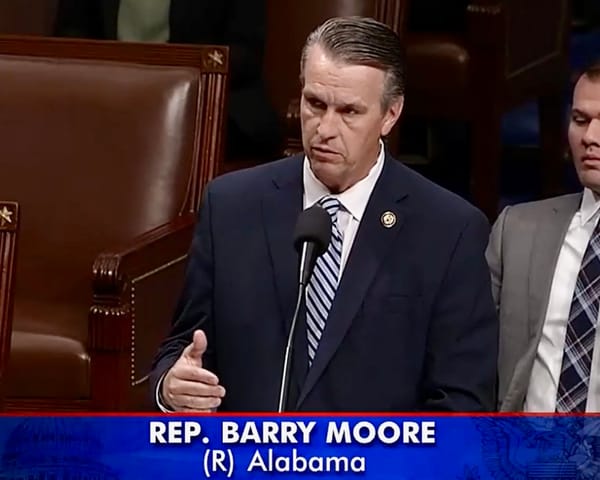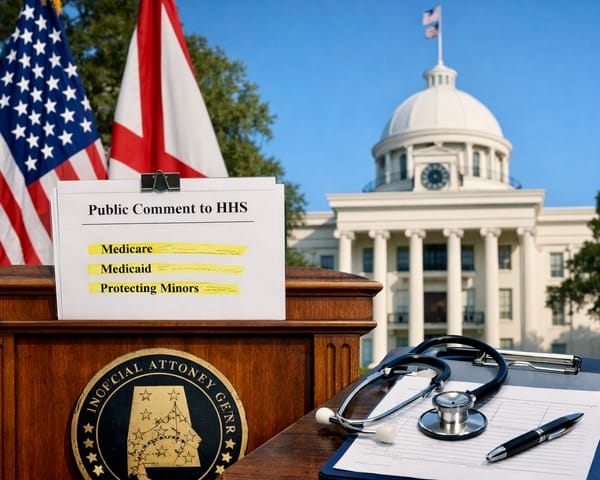Alabama Leaders Re‑introduce Bill to Make Child Sex Abuse Death‑Penalty Eligible
State Rep. Simpson, Sen. Weaver plan to reintroduce bill like HB49, that died in the 2025 session

Alabama lawmakers and law enforcement officials gathered at a State House press event on Thursday to unveil new legislation aimed at applying the death penalty to certain sex crimes against children. The move follows in the wake of a shocking child abuse investigation in Bibb County.
State Representative Matt Simpson (R‑Daphne) and State Senator April Weaver (R‑Brierfield) announced they will refile a bill that would allow prosecutors to seek the death penalty for first‑degree rape or sodomy when the victim is under 12. The bill, HB49, initially passed the House in February by an 86–5 vote, but stalled in the Senate.
Rep. Simpson said, “Taking advantage and taking the innocence of children under the age of 12 is one of the worst things … It deserves the worst of the worst punishments.” He emphasized that such cases demand the harshest possible consequences.
Sen. Weaver, whose District includes Bibb County, said, “I believe that there is a special place in hell for child sex predators. And when we pass this bill, and it is approved by the courts, there is also going to be a special place in Alabama for child sex predators, and that is on the death row of Holman Prison.”
Bibb County Sheriff Jody Wade, whose Office is actively investigating the case involving multiple child victims aged as young as three, called the recent ring “one of the most horrific cases of child sexual abuse that any of us can remember” and voiced his full support for the proposed legislation.
Attorney General Steve Marshall praised Sheriff Wade and his team, noting he has “seen a lot in 25 + years as a prosecutor … the scope and depth and the depravity of what has been described … they are the worst that I’ve ever seen.” Marshall pointed out that Alabama had previously considered capital punishment in such cases and that other states—Florida, Tennessee, Idaho, Arkansas, Oklahoma—have since passed similar laws.
Under current U.S. Supreme Court precedent (Kennedy v. Louisiana, 2008), the death penalty cannot be applied to non‑homicide crimes like child rape. But Simpson and Weaver hope Alabama can pressure the high court to revisit that ruling by following the example of other States that have adopted similar statutes.
The Bibb County case involves at least seven arrested individuals and ten children victims aged between three and fifteen years old. Authorities uncovered a clandestine underground shelter where abuse occurred over an extended period. The proposed bill matches models passed in Florida in 2023 and Tennessee in 2024, and was brought forward earlier this year in Alabama with bipartisan support in the legislature.
If passed, this policy would dramatically expand Alabama’s use of capital punishment. It would also directly challenge long‑standing Supreme Court precedent and likely spark legal battles. Supporters say it reflects public outrage and moral necessity; critics warn of fiscal cost, constitutional conflicts, and uncertain judicial outcomes.
Lawmakers plan to fine‑tune bill language before pre-filing it for the 2026 session. Simpson and Weaver are tracking approaches from other States to shape Alabama’s version. While the legislation would not apply retroactively—meaning current Bibb County suspects will not face capital charges under it—it sets a bold tone for future prosecutions.
WSFA’s stream of Thursday’s press conference can be seen HERE.




